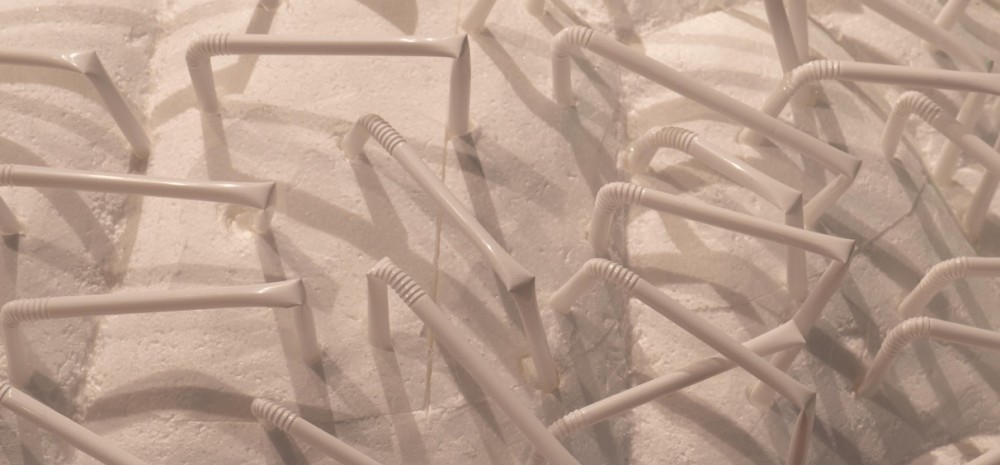Maricel Reid (b. 1993)
Artificial Parasites, 2019 Foam, plastic straws, hot glue 8†x 45†x 33â€
Growing up in Hawai’i and being surrounded by the big Pacific gave me first-hand knowledge on how trash affects the marine ecosystem. The Hawaiian culture displays a deep relationship with the natural environment and highly respects the animals that inhabit the wild. Turtles are one of the most treasured animals in Hawai’i, which therefore results in numerous projects to help them thrive and grow from the endangered status that the species are currently in. In addition to being the first state to ban plastic bags in 2015, Hawai’i will continue to lead by example once again and be the first state in the U.S. to ban majority of plastic use in public eateries by 2022.1
Inspired by the viral video of a plastic straw being removed from a turtle’s nose in 2015, Artificial Parasites will demonstrate how the lecherous plastics will overtake the body and cause the turtles’ demise. According to the National Oceanic and Atmospheric Administration (NOAA), turtles ingest foreign items such as balloons, plastic bags, and numerous other plastic fragments and perish from it.2 Marine debris is located in every layer of the ocean from the surface to the sea floor. It is also becoming inescapable and is a part of the sea creatures’ diets. Plastic is not biodegradable and is therefore unsuitable for ingestion, however, are the sea turtles and other marine life aware of that? Artificial Parasites will allow the viewer to think about the welfare of the environment and its inhabitants, as well as witness the unnatural parasites wriggle and burrow throughout the reptile, sucking the life out of its host.
1 Griggs, Brandon. “Hawaii Could Become the First State to Ban Most Plastics at Restaurants.”CNN. March 20, 2019. Accessed April 28, 2019. https://www.cnn.com/2019/03/20/us/hawaii-plastic-restaurants-ban- trnd/index.html.
2 “Green Turtle.†NOAA Fisheries, www.fisheries.noaa.gov/species/green-turtle.
